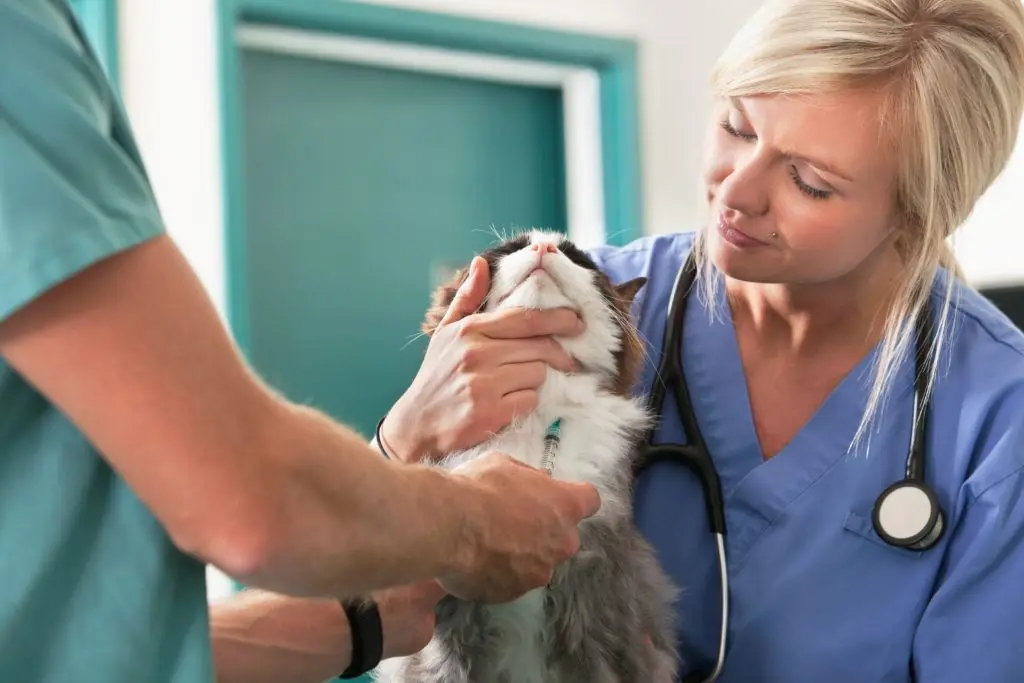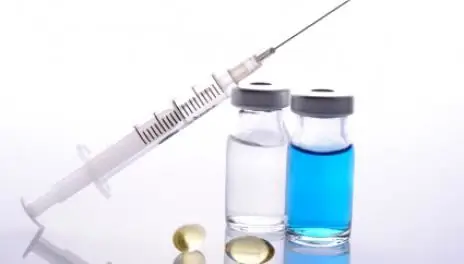2026 Author: Priscilla Miln | miln@babymagazinclub.com. Last modified: 2025-01-22 17:55:26
Pyelonephritis in children is an inflammatory disease that is very common and is one of the most common infectious diseases in babies after respiratory diseases.

The term "pyelonephritis" is a fusion of the words pyelos, which means "trough", and nephros, which means kidney. Therefore, the name reflects the essence - an inflammatory process affecting the renal pelvis and kidney tissues. In young children, it is quite difficult to establish exactly where the lesion is localized, so they most often talk about "urinary tract infection".
Pyelonephritis in children, types of disease
The disease is provoked by intestinal microorganisms such as cocci and coli bacteria (staphylococcus aureus, streptococcus, intestinal escherichia, enterococcus, proteus and others).

Most often isolated mixed microflora. Urinary tract infection causes pyelonephritis. The causes of this disease in children and adults are a disturbed outflow of urine, its reverse reflux (reflux).
Pyelonephritis in children can be primary and secondary. Primary develop with a normal structure of urologicalorgans. Secondary are observed in children with congenital pathology of the bladder, ureters and kidneys. The lesion can be unilateral or bilateral. The disease is acute, chronic or recurrent.
Acute pyelonephritis with adequate treatment ends with recovery in less than 2 months. In the chronic course of the disease, symptoms persist for up to six months and exacerbations of the disease are periodically observed.
Pyelonephritis in children, symptoms
Common characteristic symptoms include fever (up to 39 degrees), weakness, lack of appetite, nausea. An increase in temperature is accompanied by sweating and chills. There is pain in the lumbar region.

Often the disease is accompanied by cystitis or urethritis. In some cases, pyelonephritis in children is asymptomatic. Parents should pay attention to the child's rapid fatigue, mood swings, pallor, frequent visits to the toilet at night.
How to treat pyelonephritis in children?
In the acute period of the disease, various drugs are used (sulfanilamide, antibiotics, nitrofuran, nitroxoline), which are prescribed by the attending physician. In a chronic disease, antibiotic treatment is carried out in courses, under the control of the patient's general condition and his tests. If the cause of pyelonephritis are anomalies of the anatomical structure, the doctor decides on the need for surgical intervention.
The use of phytotherapy, homeopathic remedies andimmunomodulatory drugs. After suffering pyelonephritis, it is recommended to be systematically observed by a specialist doctor. At the same time, an ultrasound examination is carried out - once every six months or a year, as well as regular testing.
It must be remembered that pyelonephritis in children often occurs in the presence of a chronic focus of infection. It can be inflammation of the internal organs, and the flu, and even ordinary caries. At the same time, pathogenic bacteria are carried through the blood from the lesion to the kidneys and cause inflammation in them.
Recommended:
Pyelonephritis in a cat: symptoms and treatment, nutritional features

All living beings tend to get sick. However, cats, unlike humans, cannot tell their owners that they are unwell. Therefore, any owner should carefully monitor how his pet feels. Any change in physical condition and behavior (lethargy, refusal of food, excessive need for sleep) are signs of ill he alth. Pedigree animals are especially prone to colds and kidney pathologies. This article is about pyelonephritis in cats
Tetanus: symptoms in children. Signs and pathogens of tetanus. Prevention and treatment

Tetanus is an acute bacterial infectious pathology. It is characterized by damage to the nervous system and manifests itself in the form of generalized convulsions and tonic tension of the entire skeletal muscles
Toxocariasis in children. Treatment of toxocariasis in children. Toxocariasis: symptoms, treatment

Toxocariasis is a disease about which, despite its widespread distribution, practitioners know not so much. The symptoms of the disease are very diverse, so specialists from various fields can face it: pediatricians, hematologists, therapists, oculists, neuropathologists, gastroenterologists, dermatologists and many others
Pyelonephritis and pregnancy: causes, symptoms, treatment and consequences

Pregnancy is an important stage in the life of every woman. However, the process of carrying a child in the womb is a stress factor for the body. During this period, chronic diseases often worsen. Not everyone can recognize the first symptoms of pyelonephritis during pregnancy. This explains the delay in women seeking medical help
Pyelonephritis during pregnancy: symptoms, treatment, consequences

Pyelonephritis during pregnancy is a serious threat, both for mother and child. This pathology refers to infectious diseases, and therefore the first signs of its appearance should not be ignored. Otherwise, everything can end badly. The survival of the child becomes a big question. But even if he is born, he alth problems are guaranteed. For this reason, every pregnant woman needs to carefully monitor herself

